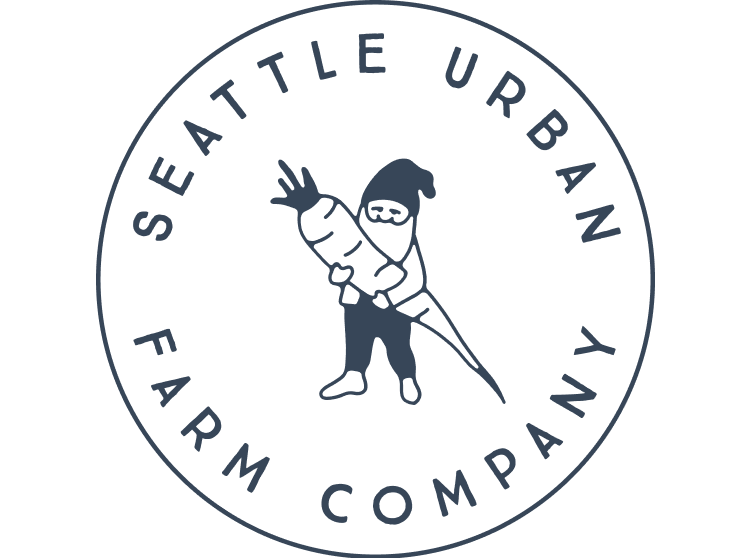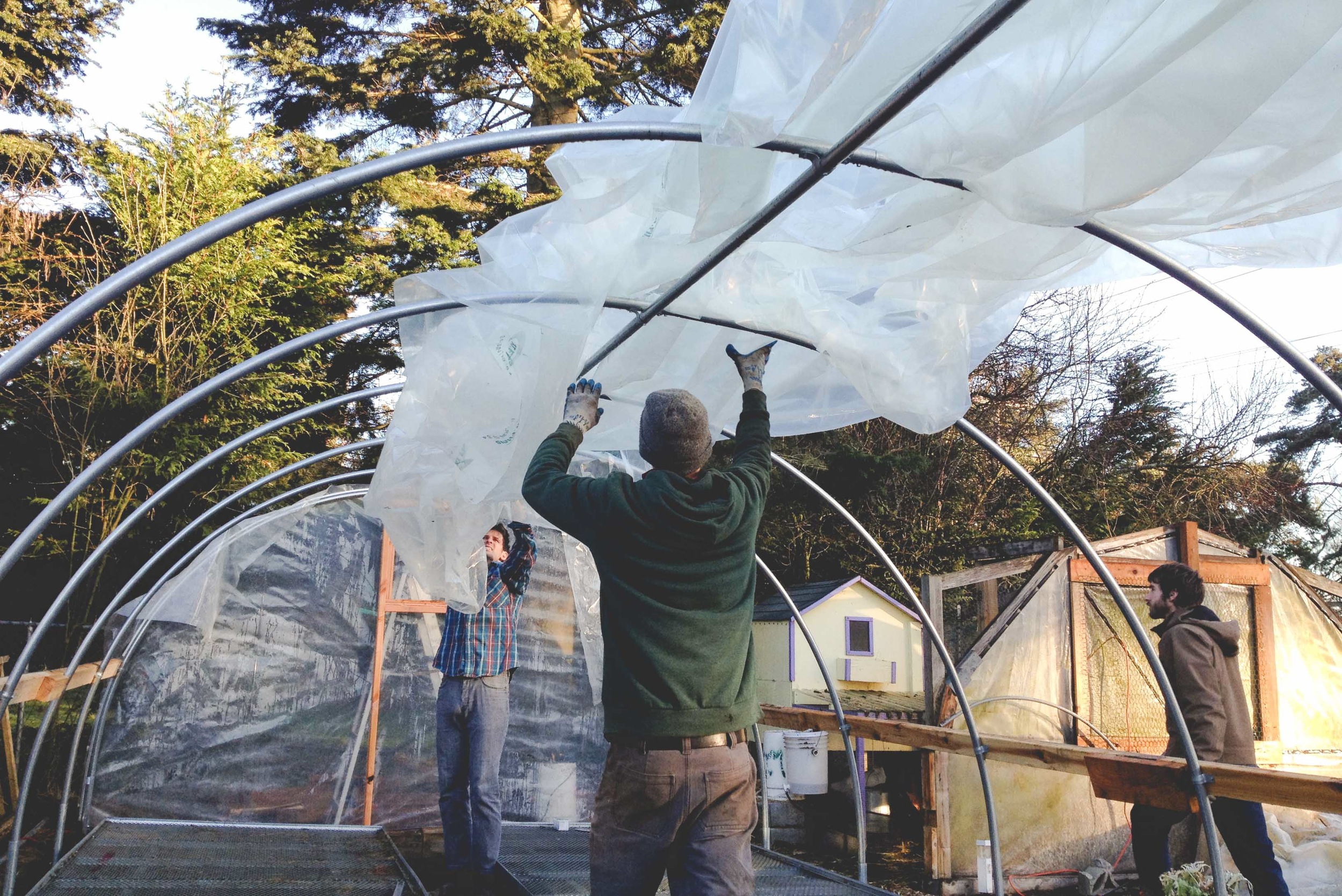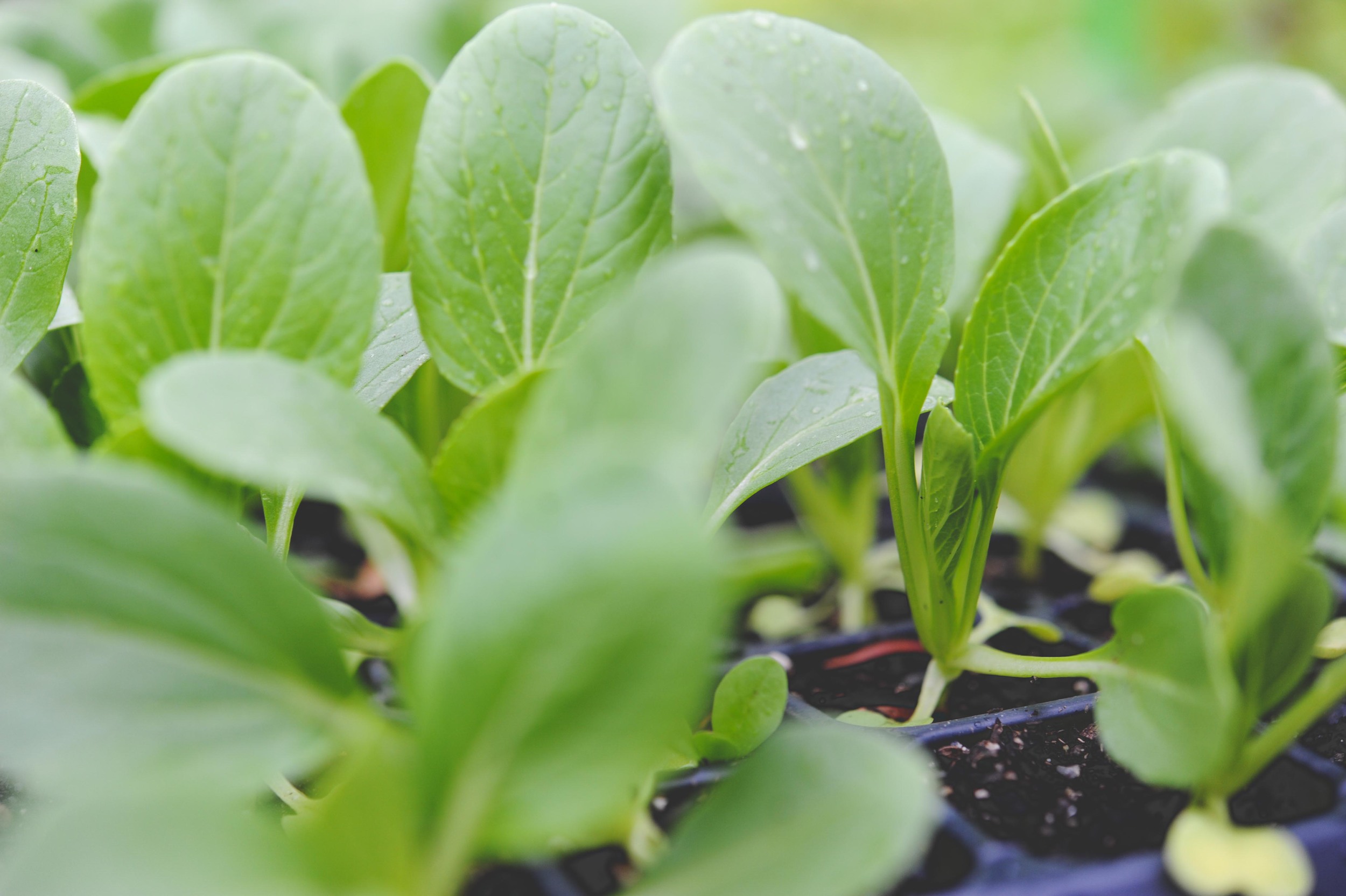Annual fennel, Foeniculum vulgare, also know as “bulb” fennel, is a versatile vegetables that makes a great addition to soups, salads, pizza’s and has even been know to make an appearance in desserts (Fennel cupcakes)! It’s high in vitamin C, and is also a good source of calcium, fiber and potassium.
Read MoreRhubarb
Horticulturally Rhubarb is a vegetable, but it is often used more like a fruit. It has a relatively sour taste which makes it well suited to mix with honey or sweet fruits such as strawberries.
Rhubarb is a hardy perennial from Asia and has long been used as a food and medicine in Chinese cultures. It has large, almost jurassic-sized green leaves on bright red or green stalks. The large leaves create great visual structure in a landscape, but only the stalk are eaten, as the leaves contain high concentrations of oxalic acid, which is toxic to humans.
Read MoreNew Greenhouses
Did you know that we start 97% of our own annual vegetable transplants from seed? That ends up being around 40,000 transplants every year! We grow our own transplants, hand picking varieties that we have tested and know to grow well in the PNW, to ensure that our plants get off to a healthy start.
Read MoreSeeding Transplants for Spring
Winter hasn’t even officially started but, believe it or not, it’s time to begin thinking about buying seeds for the spring! Not only can getting your seeds early allow for a jump-start on your spring planting, but onion and leeks actually need to be seeded as transplants in January so they have enough time to size up before being planted out in the garden in the early spring. Crops that can be started early for spring harvests are: broccoli, kale, cabbage, chard, celeriac, celery, collards, scallions, parsley, peas.
Read MoreSeattle Urban Farm Co. Presents at Pecha Kucha Seattle
Pecha Kucha Seattle: Volume 49: Food is Power
For a link to the entire presentation, click here.
AIA Continuing Education Course on Urban Farming
We partnered with local landscape architecture firm The Berger Partnership to create a continuing education course on urban farming.






